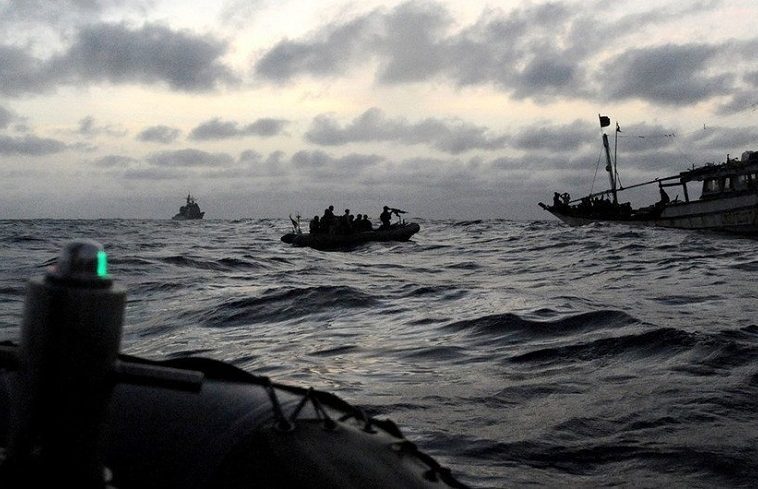“Peace is not merely the absence of conflict, but the presence of conditions that allow for growth and prosperity.” – Nelson Mandela
As Africa stands at the crossroads of rapid transformation, the continent is witnessing the profound impact that peace initiatives have on driving economic growth. In the words of Dr Akinwumi Adesina, President of the African Development Bank, “In Africa, peace is the engine driving economic transformation.” This truth resonates across regions where peacebuilding efforts have laid the groundwork for economic stability, infrastructure development, and societal progress. The 2024 International Day of Peace, themed “Cultivating a Culture of Peace,” is a powerful reminder that Africa’s journey to sustainable development remains incomplete without peace.
The Powerful Nexus Between Peace and Economic Growth
Africa has long faced the dual challenges of conflict and underdevelopment. Wars, political unrest, and ethnic tensions have drained resources, disrupted economies, and deterred investment. The African Development Bank (AfDB) estimates that Africa loses up to 2% of its GDP annually due to conflicts. Conversely, peace initiatives are reversing this trend, proving essential to rebuilding economies and attracting foreign and local investment.
Rwanda’s Post-Genocide Economic Miracle
Rwanda is a prime example of peace fuelling economic transformation. After the devastating 1994 genocide, Rwanda was synonymous with instability and poverty. However, through an ambitious peace and reconciliation process—embodied by the community-based Gacaca Courts—the country has emerged as one of Africa’s fastest-growing economies.
Under the leadership of President Paul Kagame, Rwanda has achieved average GDP growth rates of 7-8% annually over the past two decades. In 2023, the country recorded an impressive 6.7% GDP growth, driven by investment in tourism, technology, and infrastructure. Peace has become Rwanda’s foundation, making it a beacon of stability and attracting significant foreign direct investment (FDI) in sectors such as technology.
The African Union’s Role in Securing Peace and Growth
At the continental level, the African Union’s Peace and Security Council (PSC) has been central to maintaining peace across volatile regions. The AU’s Agenda 2063—a roadmap for a prosperous, peaceful Africa—emphasises the necessity of conflict prevention and peacebuilding.
One of the PSC’s flagship achievements is the success of its peacekeeping mission in Somalia through AMISOM (African Union Mission in Somalia). AMISOM has played a vital role in reclaiming territory from insurgent groups, restoring governance, and creating economic opportunities in once war-torn regions. According to the African Union Chairperson Moussa Faki Mahamat, AMISOM’s impact exemplifies how “regional peace initiatives can rebuild trust and open the door for economic growth.”
Somalia’s economy is beginning to reap the rewards of this newfound stability, registering a 2.9% growth rate in 2023. With peace, the future looks promising for sectors like agriculture and trade, which are key to driving the country’s economic resurgence.
West Africa: Economic Growth Through Peace
In West Africa, the Economic Community of West African States (ECOWAS) has been a regional powerhouse for peacekeeping and conflict resolution. Through diplomatic efforts and military interventions, ECOWAS has mediated peace in nations like Liberia and Sierra Leone, where prolonged civil wars previously crippled economic growth.
In Liberia, the peace process, led in part by former President and Nobel Peace Prize laureate Ellen Johnson Sirleaf, has allowed the country to embark on a steady path to economic recovery. The World Bank reported that Liberia’s GDP grew by 4.6% in 2022, spurred by the revival of its agricultural and mining sectors. This growth highlights how peace has laid the foundation for Liberia’s infrastructure and economic revival.
Voices of Leadership: The Impact of Peace on Development
Prominent African leaders have long championed the critical role peace plays in fostering economic development.
Nelson Mandela, former President of South Africa, once said: “Peace is not just the absence of conflict; peace is the creation of an environment where all can flourish.” This philosophy has become a guiding light for nations like Mozambique, which has seen economic growth after decades of civil strife.
Dr Akinwumi Adesina, President of the African Development Bank, emphasised the role of peace in unlocking economic potential: “Peace is the lifeblood of development. Countries that have peace attract investments, create jobs, and grow faster.” Under Adesina’s leadership, the AfDB has focused on post-conflict nations, providing critical financing for infrastructure projects that support long-term growth.
Wangari Maathai, Nobel Peace Prize Laureate, underscored the importance of peaceful resolution to conflict: “Peaceful solutions are the only way to build lasting societies.” Her words resonate in nations like Angola, where peace has paved the way for economic diversification and significant foreign investment.
Former United Nations Secretary-General Kofi Annan succinctly captured this dynamic, noting: “Without peace, there can be no sustainable development, and without sustainable development, there can be no lasting peace.”
Ethiopia’s Path to Recovery
Following a devastating civil conflict in the northern region of Tigray, Ethiopia is slowly rebuilding its economy. The 2022 peace agreement between the federal government and Tigrayan forces has enabled the return of stability to large parts of the country. The International Monetary Fund (IMF) projects Ethiopia’s GDP growth to rebound to 6% in 2024, driven by revived agricultural production and a renewed focus on infrastructure.
Similarly, Angola has leveraged its oil wealth to spur growth in the wake of a 27-year civil war. Peace has been a catalyst for the country’s economic diversification, with growth projected at 3.5% in 2023, and significant strides being made in sectors such as agriculture and mining.
Sustaining Peace for Economic Prosperity
The future of Africa’s economic development hinges on sustained peace efforts. Initiatives such as the African Union’s Silencing the Guns by 2030 campaign aim to eradicate conflicts across the continent, ensuring that the economic gains of recent years are not undone by renewed violence. Continued investment in peacebuilding, governance, and regional cooperation will be crucial to maintaining stability and promoting long-term prosperity.
In the end, peace initiatives in Africa are more than just a means of ending conflict—they are the foundation upon which economic progress is built. As more nations embrace stability, Africa’s potential as a global economic powerhouse is becoming increasingly evident. Peace is not just the absence of war; it is the cornerstone of Africa’s journey towards sustainable growth and development.




